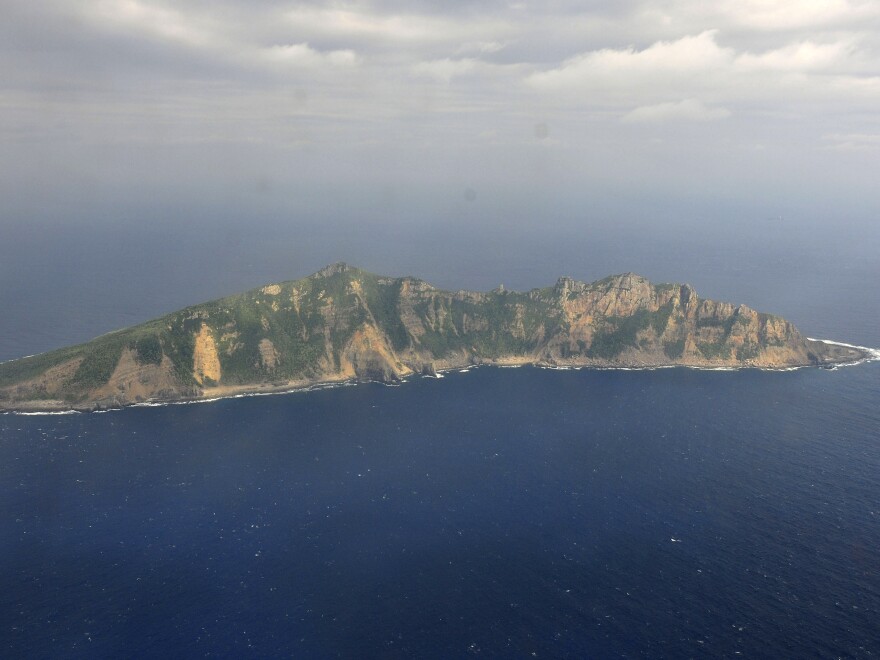China says Japan's decision to participate in joint military exercises with the United States will not dampen its resolve to defend its claim to a disputed island chain that has been a recurring source of tension between the Asian neighbors.
In reference to the joint drills, planned for June, Chinese Foreign Ministry spokeswoman Hua Chunying said "foreign pressure" cannot sway China from protecting its territorial sovereignty in the East China Sea.
"For any related provocative actions, the Chinese government will maintain a resolute response," Hua was quoted by Reuters as saying during a regular media briefing.
On Tuesday, patrol craft from the two countries squared off in a game of oceangoing chicken near the disputed islands, known by Japan as Senkaku and to China as Diaoyu.
The Wall Street Journal from Tokyo that on Tuesday:
"China sent eight maritime-patrol ships to the waters surrounding small East China Sea islands controlled by Tokyo but claimed by Beijing, saying it was responding to the 'illegal entry' of boats piloted by Japanese activists into its waters. The Chinese flotilla was the largest Beijing had sent to the area since September, when the current dispute flared up following Japan's decision to nationalize the islands."
Foreign Policy magazine writes that "the Senkaku-Diaoyu Islands dispute has been marked by an increasing number of deliberate provocations on both sides: surveillance vessels enteringnearby waters, patrol planes making passes by the islands, scrambled fighter jets. These are planned actions, designed to incrementally heighten tensions. But the more fighter jets that get scrambled without good communications systems in place, the higher the chances that these deliberate moves escalate beyond what either Japan or China is anticipating."
As we've reported in the past, this particular dispute is just one of several in Asian waters that has placed China at odds with its maritime neighbors for decades and has even resulted in brief clashes on occasion.
Reuters quotes U.S. Chairman of the Joint Chiefs of Staff Gen. Martin Dempsey as telling reporters in Beijing on Wednesday on the last day of his trip to China that he had reminded Chinese officials of U.S. obligations to Japan.
"Our position is that we don't take a position on territorial issues. In the case of Japan in particular, however, I was careful to remind them that we do have certain treaty obligations with Japan that we would honor," he said.
Copyright 2021 NPR. To see more, visit https://www.npr.org.


